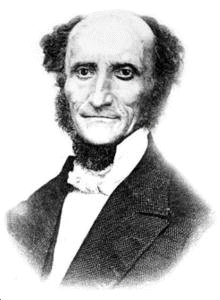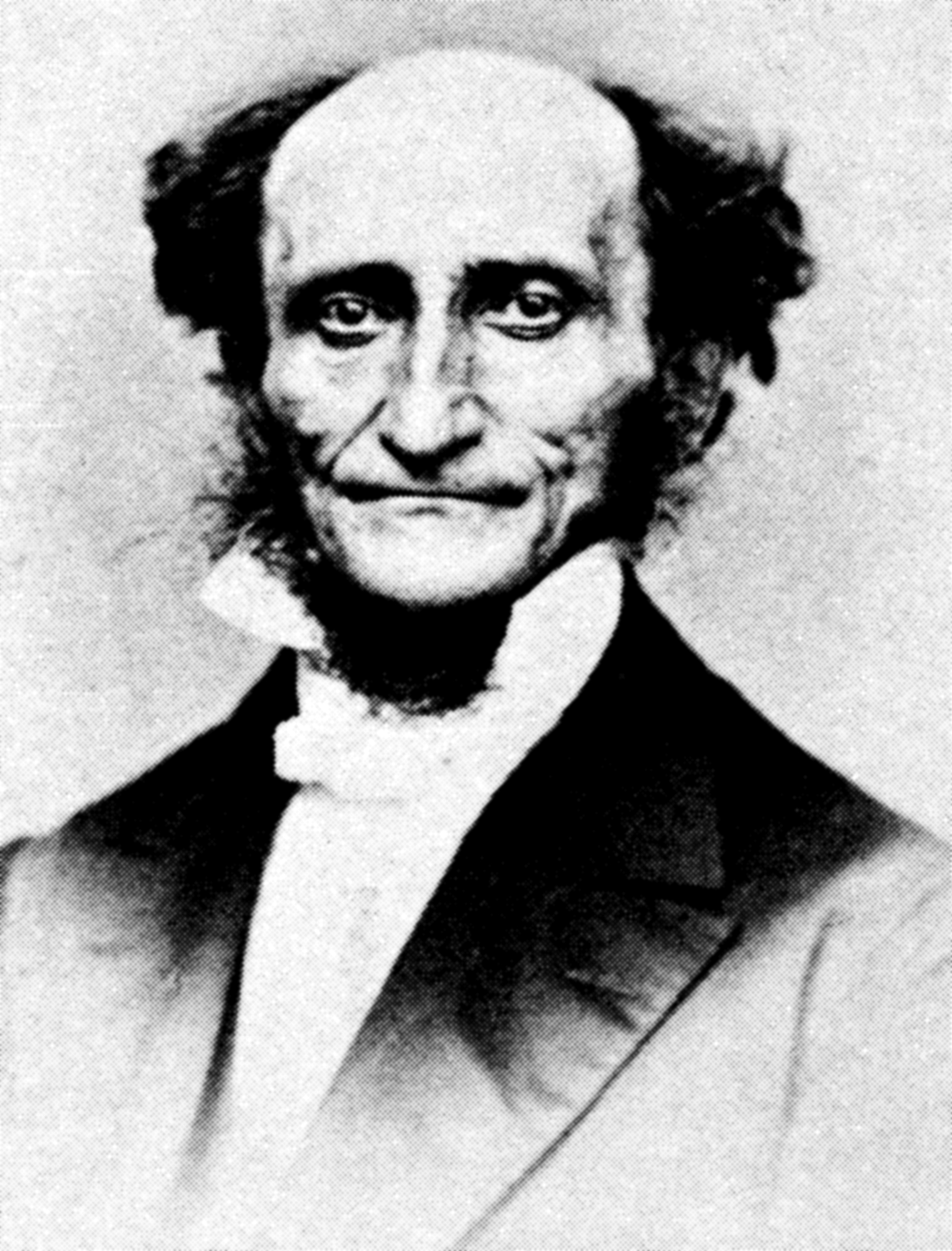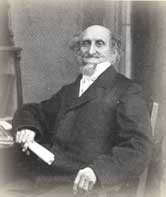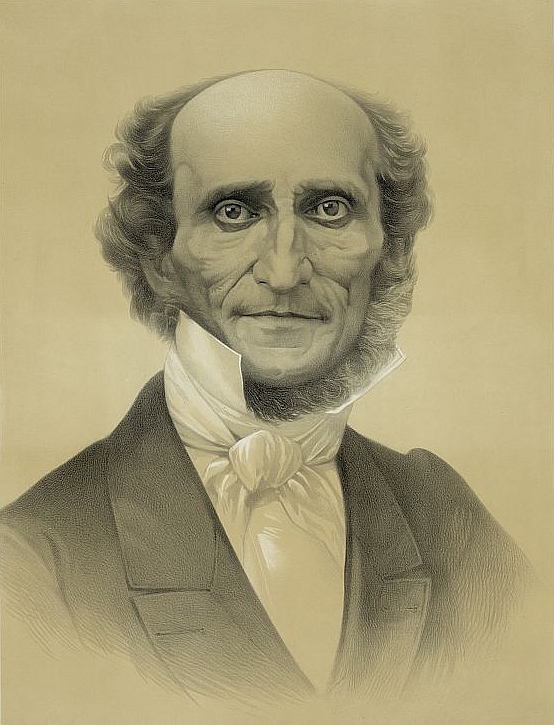C. F. W. Walther
Carl Ferdinand Wilhelm Walther (also CFW Walther, call name unknown, born October 25, 1811 in Langenchursdorf, Saxony, † May 7, 1887 in St. Louis, Missouri, USA ) was a German -American Lutheran theologian.
Biography
Walther was born as the eighth of twelve children of the pastor Gottlob Heinrich Walther and his wife Johanna Wilhelmina, born Zschenderlein. First, he was taught by his father and later at the School of Hohenstein and the Latin School in Schneeberg, where he graduated in 1829.
Walther studied in subsequent work in Leipzig theology. Due to health problems he interrupted his studies for half a year, focusing mainly self-taught on the writings and theology of Martin Luther. This study Luther justified his belief that only binding to the Scriptures, the Confessions and a strong confessionalism would bring salvation. With this conviction he was contrary to the prevailing theological rationalism and the Union's concerns of his time.
After his first theological examination Walther worked from 1833 to 1837 as a private tutor of Loeber family in Kahla. On January 15, 1837 he was ordained in the church community " to the good shepherds " in Bräunsdorf. As already during his studies he was soon due to his theological convictions in conflict with the civil and ecclesiastical authorities of the Kingdom of Saxony.
After Martin Stephan, a preacher of Dresdner exiles community met, Walther became convinced that he his pastoral ministry could no longer perform as in the rationalist dominated state and had come under the influence of liberal theology Church, as his understanding of the ordination vow corresponded. When Martin Stephan urged his followers to emigrate to America, Walther followed him into a group of about 800 Saxon Lutherans. From Bremen he broke on the ship " Johann Georg" to America, " to liberate the orthodox Lutheranism in America."
On January 5, 1839, he arrived in New Orleans and made off with most of the exiles on their way to Missouri. He initially assisted the community in Perry County, which had been founded by German Altlutheranern from Prussia. On September 21, 1841 he married Emilie Buenger (* 1812, † 1885). Between 1842 and 1852 went from this marriage produced six children.
After Bishop Martin Stephan was dismissed due to financial infidelity and immorality of his offices, Walther took over the management of the Saxon emigrants group. In 1847 he founded the Missouri Synod, whose president he was elected in 1847 and 1850 as well as 1864 and 1878. He was also the founder of a preparatory course, which passed in the Concordia Seminary. From 1850 to 1857 he taught theology here. In 1853 he founded the St. Louis Lutheran Bible Society.
He also took part in the Evangelical Lutheran founded in his native Saxony 1876 Free Church ( ELFK ). Friedrich Ruhland, the first president of the ELFK, had been trained in the Missouri Synod.
1855 offered the Georg-August -Universität Göttingen Walther on an honorary doctorate, but he rejected. However, he accepted in 1878 an honorary doctorate from Capital University in Columbus, Ohio, at. Almost 46 years he was pastor of the Trinity Lutheran Church in St. Louis.
Founded in 1844 by the magazine " The Lutherans " Walther led many conservative Lutherans of the Midwest together. Other writings Walthers prepared under controversial theological discussions mainly with other Lutherans (eg Wilhelm Lohe ). The understanding of Scripture and the Walther's writings on Biblizistik, evangelical church confessions and subsequent to the Reformation scholastic theology shape the self- understanding of the Missouri Synod, which now belongs to about one- third of American Lutherans. This spiritual fatherhood is named " Luther America " introduced Walther.
Walther died 1887. On the Concordia Cemetery, where he is buried, his mausoleum was built.
Remembrance
May 7 in the calendar of the Lutheran Church - Missouri Synod.
Swell
Novel
- Inge Rose Paust: The extract of Eight Hundred
Magazines
- From 1844: The Lutherans
- 1855: Teaching and weirs
Works
- The voice of our Church on the issue of church and ministry. 1852
- The right form an independent state by the Evangelical Lutheran local congregation. A. Wiebusch & Son, St. Louis 1864
- The Evangelical Lutheran Church, the true visible church of God on earth. Concordia Publishing House, St. Louis in 1867, 1891
- American Lutheran Gospel Homilies: Sermons on the Gospel Peric Open the church year. Concordia Publishing House, St. Louis in 1870, 1871, 1876
- American Lutheran pastoral theology. 1876
- John Baier (ed.): Compendium Theologiae Positivae. 1877 (Volume 1) (Volume 3)
- Law and Gospel ( 1878). Concordia Publishing House, St. Louis 1893
- The right distinction between law and gospel (1884-1885, English). Concordia Publishing House, St. Louis 1929










